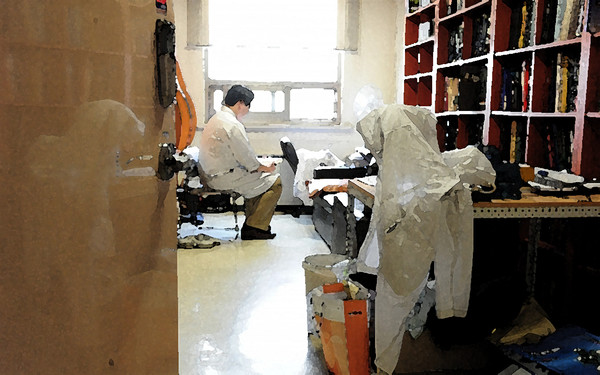The decision on Korean medical school professors' application for an injunction to suspend execution and stop the government’s increase in the medical school enrollment quota will likely come as early as Friday.
All parties involved in the ongoing medical turmoil are keenly watching to see if the court will accept the application and, if so, when, as it could also impact the academic status of medical students on leave of absence, a legal counsel said Monday.

"I think it will be decided after a hearing on Thursday. It could come out as early as Friday, a day after the hearing," said Lee Byung-cheol, a lawyer at the law firm Chan-Jong, the legal representative of the Medical Professors Association of Korea (MPAK) that applied for the injunction, in a telephone interview with Korea Biomedical Review.
This week is the deadline for most medical schools to address the academic status of students on leave of absence, Lee said, adding that he believed the decision would come quickly to prevent mass academic setbacks for med students boycotting the class.
“If the case goes to a higher court, it should be decided within April to prevent a possible mass flunking," the lawyer said. “If the government has finalized quota allocations and universities have released their admissions syllabi, it will be hard to turn back."
If the court accepts the injunction application, the government will have to halt the enrollment increase plan for the class of 2025 and stop receiving quota applications or allocations scheduled for April. In short, the plan to increase medical students by 2,000 will “go up in smoke,” he said.
"If the injunction is granted, the government can do nothing. It can appeal to the High Court and the Supreme Court, but it is difficult to overturn the lower court decision," Lee said.
In that case, the government must “go through the due process, starting with establishing the scientific basis for the increase," which the medical community has been demanding.
The case involves whether the medical student increase was done "in accordance with constitutional due process principles." The lawyer pointed out that the government "never consulted" with the medical professors, doctors, and medical students affected by the expansion and never consulted with the Korean Medical Association about the "size" of the expansion.
The lawyer believed that the government also violated the Higher Education Act, as the Ministry of Health and Welfare, instead of the Minister of Education, made the quota increase decision to expand and failed to meet the deadline for publishing an implementation plan for college admissions.
On the other hand, the government maintains that the medical school admission quota increase is an "exceptional case.
"The increase in medical school admissions under Article 33 of the Enforcement Decree of the Higher Education Act states that 'if there is an adjustment of the enrollment quota for university structure reform,' the implementation plan for the college entrance can be changed," the Central Disaster Countermeasures and Safety Headquarters said last Friday.
However, the medical professors’ association filed the lawsuit and called the government's announcement a "lie."
In a press release released on Monday, the association said that the university structural reform is “designed to ‘reduce’ college admissions when there is more university student quota than high school graduates due to a sharp decline in the school-age population.”
The association said the ongoing quota increase has “nothing to do with the university structure reform," adding that the government's proposed increase of 2,000 medical school seats in 2025 is "legally impossible." Yet the government is "committing a clear act of fraud by knowingly deceiving the public" by announcing that the increase is possible.
"The education ministry in the injunction trial has yet to submit a proper response to the court because the ministry knows well that the more they rebut, the deeper they sink into the quagmire,” Lee said. "The work of the state can only be done through due process because that's what a country with proper rule of law should do."
Related articles
- Med school professors sue health, education ministers to nix student quota hike
- University leaders, medical professors clash over med school enrollment quotas
- Korea's med school craze: 3,093 students applied for 5 additional spots
- Confusion reigns from day 1 of putting public health doctors in teaching hospitals
- Exodus of medical residents forces neurological society to cancel workshop
- SNU medical professors propose requesting foreign institute to forecast Korea's physician increase
- 'Void of trainee doctors, Big 5 hospitals could suffer bankruptcies in a cascade'
- From March, tertiary hospitals will get ₩18 million monthly if they hire a physician
- President Yoon calls for dialogue on med school quota amid ongoing healthcare crisis
- Professors from top Korean medical schools to resign en mass next Monday
- After widespread class boycotts, medical students gear up for class-action lawsuit

